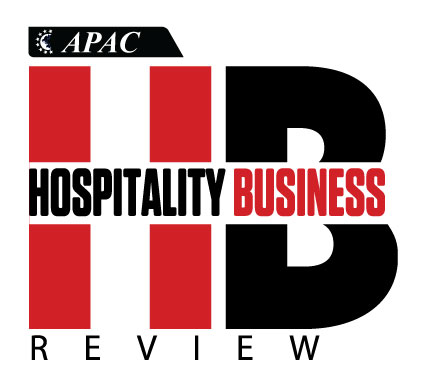Thank you for Subscribing to Hospitality Business Review Weekly Brief
Transforming Hospitality Procurement: Future Insights for Better Services
Hospitality Business Review | Wednesday, July 16, 2025
The hospitality industry depends heavily on efficient procurement processes to maintain smooth operations and deliver high-quality guest experiences. Hospitality procurement services are crucial in sourcing, negotiating, and supplying essential goods and services for hotels, resorts, restaurants, and other establishments. Expanding the global hospitality industry is a primary driver of this growth.
With the expansion comes the need for efficient procurement strategies to source high-quality products at competitive prices while ensuring timely deliveries. Cost efficiency is another crucial factor influencing procurement services. The hospitality industry operates on tight profit margins, requiring businesses to optimize supply chain management. Procurement services help hotels and restaurants negotiate bulk pricing, reduce operational costs, and eliminate inefficiencies. Hospitality businesses can secure better deals without compromising quality.
Stay ahead of the industry with exclusive feature stories on the top companies, expert insights and the latest news delivered straight to your inbox. Subscribe today.
Sustainability has become a key factor in procurement decisions. Consumers increasingly prioritize eco-friendly practices, and hospitality businesses must meet these expectations. Hotels and restaurants are sourcing sustainable products, reducing waste, and partnering with ethical suppliers. Procurement services now focus on integrating environmentally responsible sourcing strategies, ensuring compliance with green certification standards. Supply chain resilience is a significant concern.
Trends Transforming Tomorrow's Technology
The hospitality procurement market is evolving rapidly, driven by technological advancements and shifting industry trends. One of the most significant changes is the rise of digital procurement platforms. These platforms utilize AI and data analytics to streamline sourcing, automate ordering processes, and enhance decision-making.
Through centralized digital systems, hotels and restaurants can access real-time pricing, track inventory levels, and manage supplier relationships. AI-driven forecasting tools enable hospitality businesses to maintain a steady supply of essential goods while avoiding excess inventory and waste. E-procurement is gaining traction, allowing hospitality businesses to automate procurement tasks and reduce manual errors.
Cloud-based procurement solutions enable seamless communication between suppliers and buyers, improving transparency and efficiency. Companies can enhance cost control and minimize waste by integrating digital procurement systems. Hotels and restaurants increasingly source local and organic products to reduce their carbon footprint. Predictive analytics is transforming procurement decision-making.
Winning Strategies in Procurement
Despite the advancements in procurement services, the hospitality industry faces several challenges that impact supply chain efficiency and cost management. Supplier delays, quality inconsistencies, and logistical issues can disrupt operations and affect guest satisfaction. Procurement services must establish strong relationships with multiple suppliers and implement contingency plans. Diversifying supplier networks reduces dependency on a single source, ensuring a steady supply of products even during disruption.
Performance tracking and supplier audits help businesses assess reliability and maintain quality standards. The prices of raw materials, food items, and essential hospitality supplies fluctuate due to inflation, geopolitical issues, and transportation costs. The fluctuations can impact profit margins and make budget planning difficult. Procurement services, such as long-term supplier contracts and dynamic pricing models, can adopt strategic sourcing techniques to mitigate cost volatility. Negotiating fixed-rate agreements with suppliers provides stability and helps businesses manage expenses.
Leveraging data analytics to monitor price trends enables companies to make informed purchasing decisions. Regulatory compliance is another critical challenge in hospitality procurement. Hotels and restaurants must adhere to food safety standards, health regulations, and ethical sourcing guidelines. Procurement services should implement compliance management systems that track industry regulations and supplier certifications. Partnering with accredited suppliers and conducting regular audits ensures adherence to legal and ethical standards. Digital procurement platforms also offer automated compliance checks, reducing the risk of regulatory violations.
Sustainability challenges pose difficulties in procurement. While many hospitality businesses aim to adopt green procurement practices, cost constraints and limited availability of eco-friendly products can hinder progress. Companies can collaborate with sustainability-focused suppliers and explore cost-effective alternatives. Investing in sustainable procurement initiatives, such as waste reduction programs and energy-efficient products, leads to long-term cost savings and enhanced brand reputation. Government incentives and certifications can support businesses in transitioning to greener procurement strategies.
Hospitality Procurement Revolution Ahead
The growing reliance on procurement services reshapes the hospitality industry by driving efficiency, cost savings, and sustainability. As businesses prioritize strategic sourcing, the market for hospitality procurement services is expected to expand further. Companies can respond swiftly to disruptions, ensuring continuous operations even during crises. Tracking real-time inventory and supplier performance enhances decision-making and reduces operational risks. The increasing focus on sustainability is also transforming procurement practices.
Automation and AI-driven procurement will be pivotal in the industry's future. Advanced data analytics, ML algorithms, and robotic process automation (RPA) will optimize procurement efficiency, enabling businesses to make data-driven decisions and streamline operations. The demand for customization and personalization in procurement is expected to rise. Hotels and restaurants will seek tailored procurement solutions that align with their brand identity, guest preferences, and regional market conditions.
Hospitality procurement services are undergoing a significant transformation driven by technological advancements, sustainability initiatives, and market demands. While supplier reliability, cost volatility, and regulatory compliance persist, strategic solutions can enhance procurement efficiency and resilience. Procurement services will play a vital role in shaping the future of hospitality, ensuring operational excellence, sustainability, and customer satisfaction.
More in News



